Any sport would teach you perseverance in one way or another.
Some of my most memorable training drills would be: treading for 30 minutes in 12-foot deep water, swimming in the chilly waters of an elevated Olympic-sized pool with two shirts during a rain shower, and the daily grind of swimming roughly a hundred 25-meter laps a day.
What I’d never done, though, was swim for over 3 hours in the open sea, so that a dinghy of fellow refugees can reach safety.
Which was exactly what sisters Yusra and Sara Mardini did through the Aegean Sea to escape war-torn Syria and fight for a chance at a normal life.
According to the statistics of the United Nations Commissioner of Human Rights (UNHCR), as of mid-2022, there are nearly 32.5 M refugees worldwide, and this doesn’t include internally displaced persons (those who didn’t have to cross any borders but were forcibly displaced).
What makes this statistic even more gutting is that nearly half are children below 18.
At the time of their odyssey, Yusra was 17 while her older sister Sara was 18. They’re just two of the millions of teenagers torn from their homes.
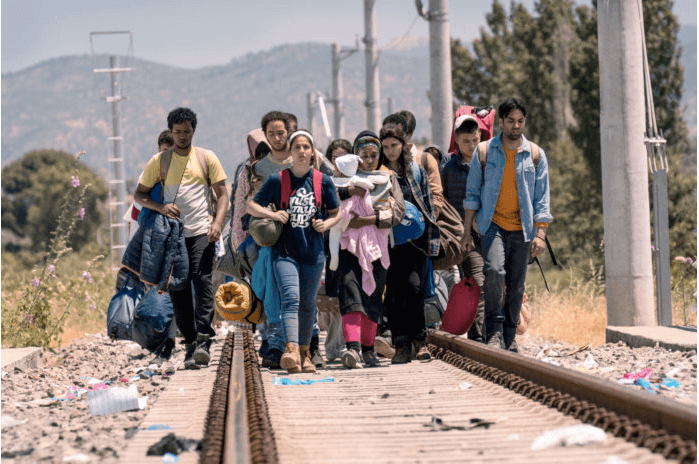
Photo: cinemadailyus.com
The UNHCR, also known as the UN Refugee Agency, was created in 1950, to assist millions of displaced Europeans in the aftermath of the end of the 2nd World War. What was supposed to be a 3-year mission is now a more than 70-year old institution, which shows us that the problem of forcible displacement due to armed conflict, political turmoil, and climate change, has also endured through time.
“The Swimmers” begins with the Mardini sisters in a pool, competing then squabbling, getting home, then squabbling again, as sisters do. As many films begin, it starts with carefree teenagers partying, but as soon as they’re on the way home, visceral reminders of the ongoing armed conflict.
What was a normal teenage life for the swimming sisters coached by their father, a professional swimmer, is soon upended by the Syrian war.
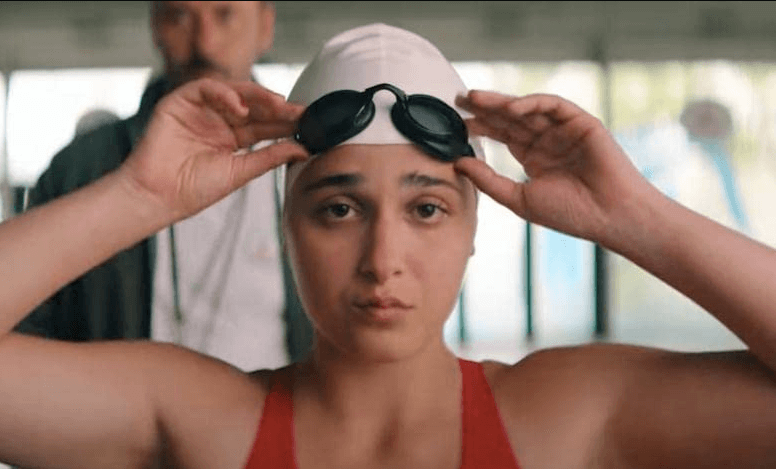
Photo: imdb.com/The Swimmers
Probably for logistical reasons, it’s common for siblings to learn a sport together (like me and my sister, like the others in our swim class who happened to be sisters, too). So I understand the bond a sport can make between siblings.
The Mardini sisters shared not just a sport but the visceral need to survive, and these served them well on their journey.
The film takes you on the Mardinis’ arduous passage from Syria to Germany, together with their street-smart cousin, Nizar. In actual events, two male relatives accompanied the sisters but for story-telling purposes only one character was used. The portion of their escape has a suspenseful, somewhat “Hunger Games” feel to it and you’ll watch in tense anticipation for the scrappy trio to overcome everything that came their way.
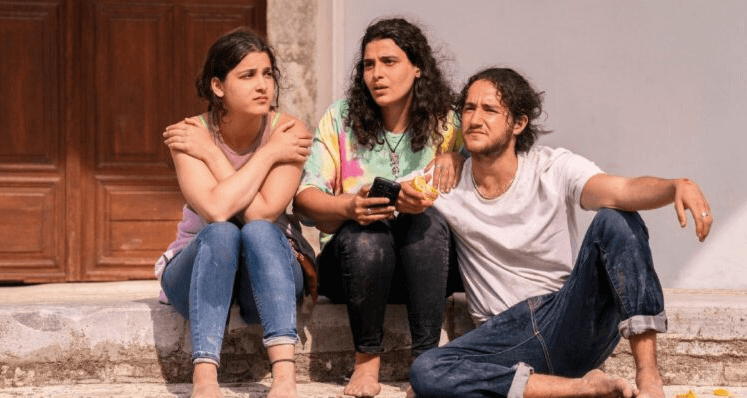
Photo: theplaylist.net
Most of the passengers riding the dinghy with them didn’t know how to swim. Then the engine of the boat that was supposed to take them to Turkey sputtered dead. It was also loaded with 3 times its capacity for passengers, and was about to sink. Sara plunges into the choppy waters, and so does her sister, in an effort to reduce the weight and help pull their fellow refugees to shore. A few other men joined them in the water, but they were the only elite swimmers and had to do most of the swimming.
Struggling in the water in the dead of night, Yusra remembers her coach and father’s advice.
“Find your lane. Swim your race.”
She imagines a lane and swims through the darkness of the waters.
They arrive, discard their life vests along with the rickety boat that brought them there, and survive one scrape after another before ending up in Berlin, this time, for Yusra to fight for a spot on the Olympics.
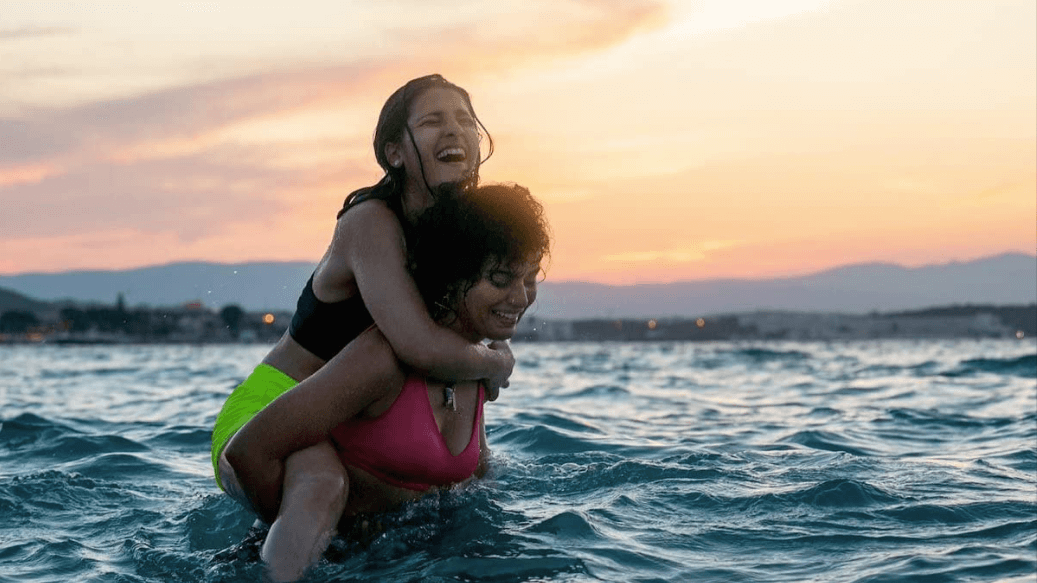
Photo: imdb.com/The Swimmers
Sports films about swimming are few and far in between, unlike for other sports.
But this is more than a sports film, and I hope you can make time to watch this extraordinary true story of grit, while one’s life, or others’ lives, depended on it.
While there’s no deep-dive into post-traumatic stress disorder, and their experiences of violence are dealt with quickly, as if it’s up to the viewers to synthesize most of the emotion; it shows enough detail for the audience to appreciate the harsh realities of how it is to escape each day with only your life.
You won’t just see beautifully cinematic shots of swimming action and get to enjoy Sia’s songs of power on a fun, vibrant soundtrack.
You’ll also…
Be able to put faces on the social cost of armed conflict.
Watch how human beings are willing to lose everything they own for peace.
See a mother casually tell her daughters over a video call that a bomb had fallen behind their house but not to worry about them.
Realize how women get an even shorter end of the stick during war.
Witness the abuses of opportunists exploiting the desperation of refugees.
Appreciate the kindness of strangers as well as the bond of blood.
Learn how “home” can be redefined.
This film will tear your heart open and make it whole again.
As citizens of the earth, as far removed from conflict we can be, it’s our duty to educate ourselves about the struggles in other parts of the globe. It makes us more empathetic, compassionate members of the human race.
The heart of the film is stated plainly in one of the opening scenes, on a wall with graffiti in Arabic.
“Your planes can’t bomb our dreams.”
P.S.: If you’re touched by their story, please consider donating to the UNHCR.
With each small gift, you play a role in a refugee’s story of finding their way.
P.P.S.: For those of you on our mailing list, you may have already read about how swimming was a huge part of my formative years.
Just for fun, here’s a throwback picture of myself (follow the arrow) at my pet event.
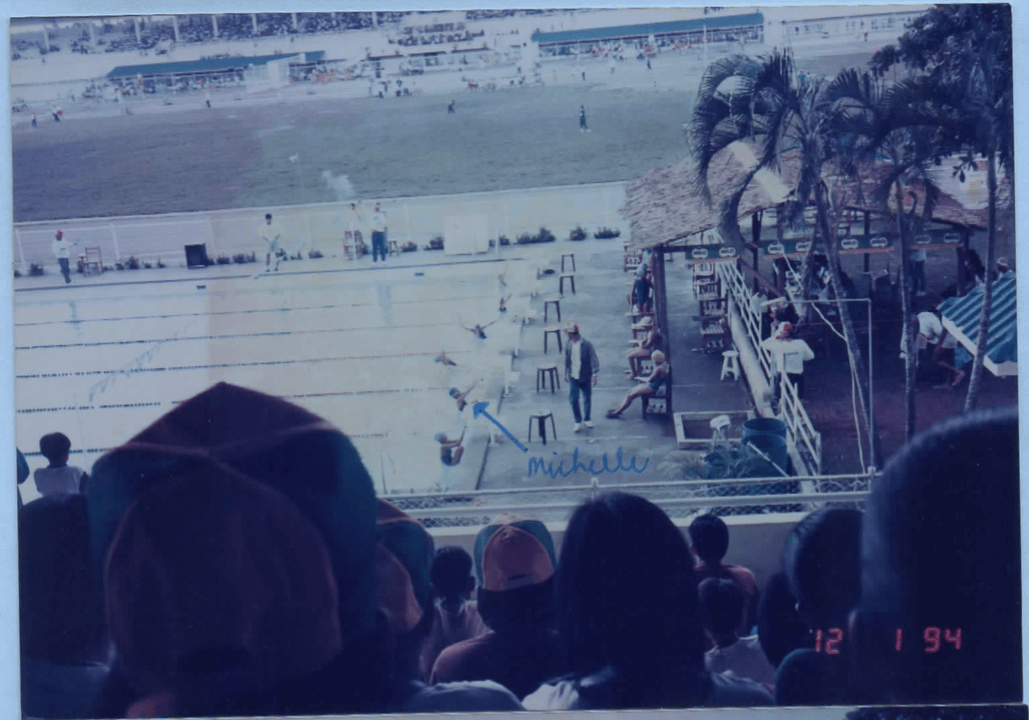


0 comments